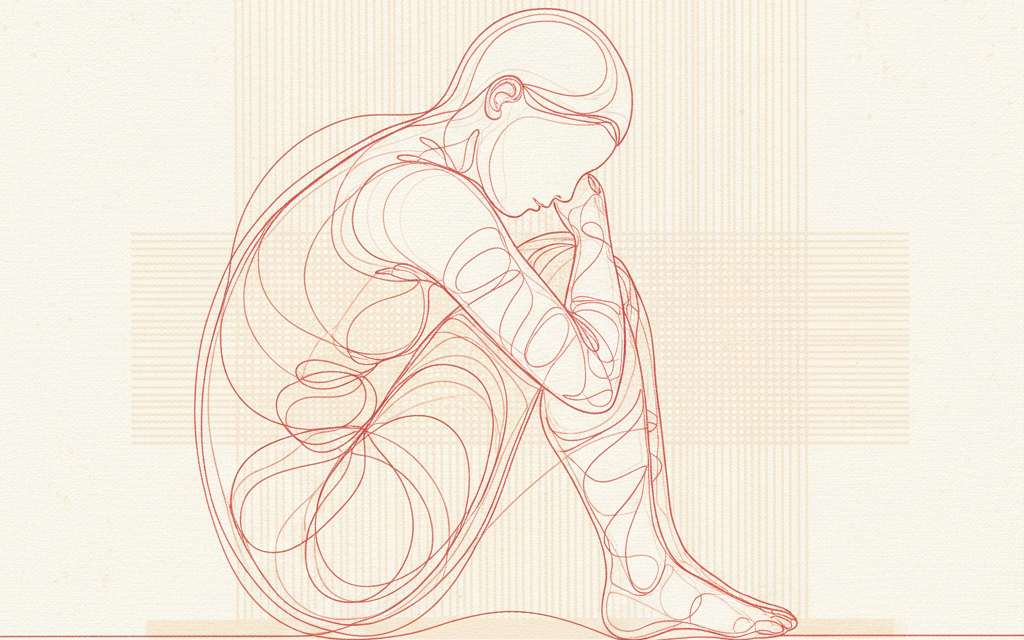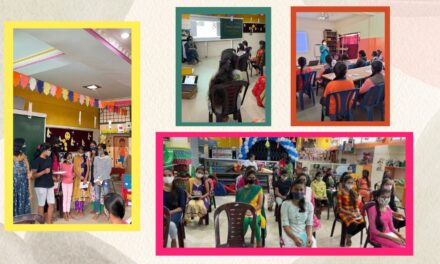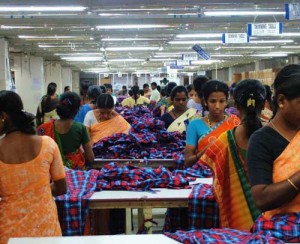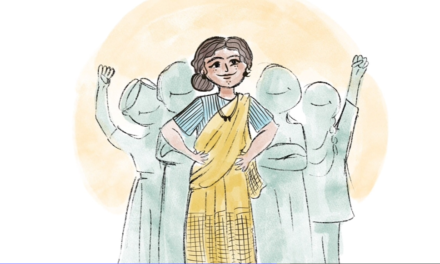Lakshmi’s two decades in Bengaluru’s garment factories reveal how long hours and rising production targets leave women workers exhausted, with no time to rest or recover
Lakshmi (name changed), 38, has spent more than twenty years in Bengaluru’s garment factories. Every morning, she leaves home by 8 am, walks to the factory, and spends nearly nine hours on the machine: cutting, stitching, finishing. Her movements are practised, almost mechanical, but her voice carries fatigue. “I work so my son can go to school and have a life I never had,” she says quietly. Still, there are days when weariness settles in, and all she wants is a little more rest and sleep.
Lakshmi’s story is ordinary, and that is precisely what makes it urgent. Across Karnataka, thousands of women like her sustain India’s ₹16 billion garment export industry. Their days stretch from dawn to night, divided between factory shifts and household labour, with barely a pause in between. “At the factory, I work. At home, I work. I don’t have time to rest,” she says, half in jest, half in despair.
She came to Bengaluru at 18, fleeing domestic violence and hoping to rebuild her life. Her first factory job was as a helper, fetching materials and trimming loose threads. Over the years, she learned the craft by watching others, first stitching buttons, then collars, then sleeves. “They weren’t just co-workers,” she says. “They were like sisters. We helped each other learn.” That sense of solidarity once made the factory floor bearable. But as production targets rose, it began to fade.
A Shifting Workplace
“The factory floor used to have laughter,” Lakshmi recalls. “We ate slowly. We talked. Now, it’s just machines and targets. No one even talks.” Supervisors time every task. “Even one minute’s delay means shouting,” she says. Younger workers, hired on short-term contracts, are pressured to meet impossible quotas. “If they can’t finish, others must cover for them. It’s unfair, but no one dares argue.”
The International Labour Organization (ILO) has documented this shift: while garment work provides stable income, women increasingly report wanting to leave due to low pay, long hours, and poor conditions. Fatigue and chronic pain are near-universal, treated as part of the job rather than a health hazard.
Lakshmi has lived this truth. Her eyesight has weakened; her back aches constantly. She visits Employee State Insurance (ESI) clinics when she can, but queues are long and medicines are limited. She visits a private healthcare facility for minor illnesses such as fever or cold, spending around ₹200–₹500 per visit.
Survival and Safety
For Lakshmi, the factory has been both a refuge and a trap. “The garment factory still provides food for me and my family,” she says. It offers predictability: a monthly salary, ESI benefits, and a familiar environment. But this sense of stability is fragile. “One mistake, one absence, and they cut wages,” she explains.
Her attachment runs deeper. Years ago, when her marriage turned violent, she left her husband and raised her son alone. On one occasion, he attacked her on her way to work. “He stabbed me, but I survived,” she says quietly. The factory became her anchor – a place to earn, recover, and stay afloat.
Yet the burden is heavy. After her shift, she cooks, cleans, and supervises her teenage son’s studies. Her day rarely ends before 11 pm. “By then my eyes burn. I just lie down,” she says.
A Cividep study, Home and the World of Work (2024), found that women garment workers spend an average of six additional hours daily on unpaid household work, and nearly 70% described this double shift as “extremely tiring.” For Lakshmi, this combination of paid and unpaid labour leaves no time to rest, recover, or simply exist outside of work.
A Body That Carries Everything
Lakshmi’s body shows the toll of two decades on the factory floor. Musculoskeletal pain, eye strain, and chronic fatigue are constant companions. She recounts mornings when she can barely get out of bed, and nights when her back throbs while she supervises her son’s homework. “A nine-hour shift already feels like ten,” she says. “If they make it longer, we will collapse.”
Her scars tell another story. During our conversation, Lakshmi gently placed my hand on her head and shoulder. “Feel this,” she said softly, showing the marks left by her husband’s attack years ago. They weren’t from the factory; they were wounds she carried silently alongside the physical and emotional strain of work. Her body bears both the past trauma and the present demands of survival.
The Right to Rest
Some factories are considering ten-hour work shifts under the Karnataka Shops and Commercial Establishments Act, reflecting similar amendments made to the Factories Act that increased shift lengths and enabled night work. Lakshmi fears the consequences: “Longer hours don’t just take time from home; they erode health and dignity. Efficiency comes at the cost of well-being.”
She holds onto hope, nonetheless. “If my son studies well and gets a good job, all this suffering will be worth it,” she says. But her own dream is simple, heartbreakingly modest: one Sunday to sleep.
Lakshmi at a Glance
- Age: 38
- From: Kolar, Karnataka & in Bengaluru since 2003
- Family: Son, no support from extended family
- Work: Garment-factory sewing machine operator
- Household Income: ~₹11,500/month (after deductions)
- Key Expenses: (Rent ₹4500)
- Daily Routine: Up 6–7 am, factory 8 am–5 pm, home chores + childcare till 11 pm
- Health: Weakened eyesight, chronic back pain, joint aches, fatigue
- Dream: Her son to get a good job
NO TIME TO SPARE SERIES
Karnataka’s proposal to extend the workday to 10 hours under the Shops and Commercial Establishments Act has sparked debate, largely focused on IT and ITeS employees. But for garment workers, especially women, the reality of longer hours began quietly after the 2023 amendment to the Factories Act, which increased shift lengths and enabled night work. Now, with changes likely to affect smaller, often informal garment units as well, the risk of overwork and exploitation deepens. ‘No Time To Spare’ is a series of ground reports that draws from Cividep’s ongoing fieldwork and research, including our recent report and documentary, to bring worker well-being into focus. Each piece captures one voice, one story, from the margins of Karnataka’s garment industry.





